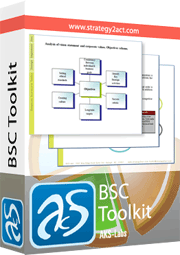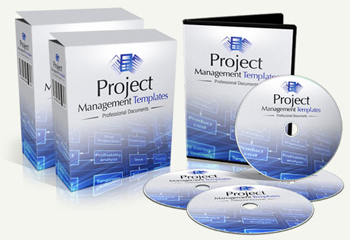Enterprise Content Management – towards simple and smart
The ECM market, just like many others, is changing fast. Research says it and you see it in your business each single day. As John Mancini reminded us during his opening keynote at the recent AIIM Forum UK 2015 we are on the crossroads of a period of massive disruption.
Disruption and transformation inevitably impact (how we look at and use) ECM as the labels become unclear and the rulebooks are changing while there is a shortage of best practices in the current context of disruption. ECM filled a need when it became widely used and the emphasis within that need was on the enterprise, content and management parts, in the end what the acronym stands for. While these needs still matter, we increasingly see that some parts are ‘missing’ and we know that other parts are evolving fast, at the speed of disruption.
ECM remains an umbrella term, covering many information and process related activities, the many ‘parts’ I just mentioned. And by now virtually everyone heard about the shifts, expressed in the somewhat overused idea of the move from systems of records to systems of engagement. But what does all that mean in reality? This is for sure: the focus is more on the business drivers, the people and process dimension, actionability and the customer/stakeholder than it ever was.
From complexity to simplicity: simple matters
At the same time we see (at least) two other phenomena. The ECM market is not just changing, it is also driven by overall enterprise change while the other way around many functional areas are instrumental in what has become known as ‘digital transformation’.
Furthermore, the landscape of solutions is enriched – and in some case complexified – because of platforms adding to various dimensions in the overall ECM equation in ‘new’ ways. Regardless of whether we want to keep using the term ECM or not, time to take a deeper dive.
In a series of blogs we’ll look at various aspects of ECM as it is today and will become tomorrow. But let’s start simple. I mean literally simple, as in KISS, the good old design and usability acronym we know as Keep it Stupid Simple to emphasize the essential role of simplicity in design and the need to avoid unnecessary complexity.
Even if it goes back to the sixties and we’ve picked it up again in web usability somewhere in the nineties that KISS principle once more became ‘hot’ in many areas for all the right reasons. Think about the contact center and customer service, for instance, where simplicity is a key goal. Not for the sake of it but for the customer and thus for efficiency. The right reasons indeed.
Instead of manually having to identify what information has value and next manually classify and tag that information, we need to ask if we can use analytics and, based on the work process, automate how our important corporate information is identified, captured and classified (Atle Sjekkeland)
KISS 2.0: back to the essential questions and forward to smarter information management
In an interview at the recent AIIM Forum UK 2015 with Atle Sjekkeland, Chief Evangelist at AIIM, Atle came up with a brilliant way to look at some of the evolutions in ECM based on the good old KISS principle, albeit it with an important twist.
I asked Atle to share his views on the future and mainly the challenges of ECM, one of the topics at the event.
Atle Sjekkeland: There are many [challenges]. It reminds me of how some years ago we used to talk about the KISS principle. And it feels like we’re back to KISS 2.0 these days. But the Ss now stand for (Keep It) Simple (and) Smart.

Atle Sjekkeland also stressed the importance to keep IT simple and smart during his workshop at the AIIM UK Forum 2015
SMART. It does sound better than stupid but if you think about it there’s a lot of truth behind it. And I’m not talking about smart cities, smart cars, smart process applications, smart everything really, nor about the intelligence needed for today’s information management success (whether we call it artificial intelligence or any other term).
I’m talking about smart in the business sense: why do we pick a solution to solve a need, how do we use it in a, well, smart way and everything else we need to be smart(er) about. The benefits as I mentioned in a previous blog post, ‘Being smart about the Internet of Things’. Come to think of it (Atle did inspire): SMART is also an acronym. In goal setting: specific, measurable, achievable, relevant and time-bound.
Unlocking the power of information: simple and smart are not enemies
Back to Atle who elaborates further on what he means with KISS 2.0 and the simple aspect.
Atle Sjekkeland: We want to make what we have done in the past [in ECM] much simpler. It should be intuitive and easy to use. The days that we had a 300-page requirement document that is almost out-of-date before even the solution is live…we have to forget some of those principles. We have to ask ourselves how do we make this simple. How do we get users to say “this [solution] makes sense for me and therefore the business is going to benefit from it”.
So, simple. And smart?
Atle Sjekkeland: And then there is smart. Instead of manually having to identify what information has value and next manually classify and tag that information, we need to ask if we can use analytics and, based on the work process, automate how our important corporate information is identified, captured and classified.
While all this and ‘smart’ might sound complex, smart is not the enemy of simple. Or at least, it shouldn’t be. After all, isn’t that what moving from information chaos to information power and success in a context of digital business transformation is about too?
The essence of smart information to win in digital transformation
Automation, processes, analytics (as in context and insights), prioritization (importance of information for the business goals) etc. These are just a few themes discussed at the event and tackled by Atle.
And maybe his KISS 2.0 idea and this blog helps you to consider what is a key part of Atle’s evangelist role at AIIM: help organizations to RETHINK how they are doing things now and look at how they can use technologies in a better way, especially around information-intensive processes, whether it’s to improve collaboration, ensure governance and compliance, better manage security/privacy or unlock the power of smart/intelligent information.
Because this is for sure: organizations that unlock, combine, analyze, use, share, manage and provide the information needed to better achieve SMART business goals and make the lives of customers and user more SIMPLE are those who will win in this age of digital transfomationwhere information is one of the core enablers of success, more than we often realize.
The full interview with Atle Sjekkeland











0 comments:
Post a Comment